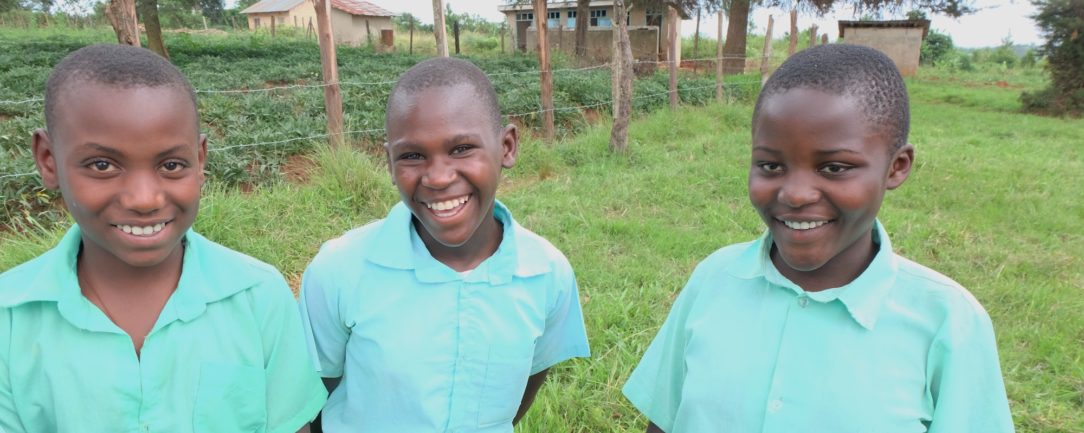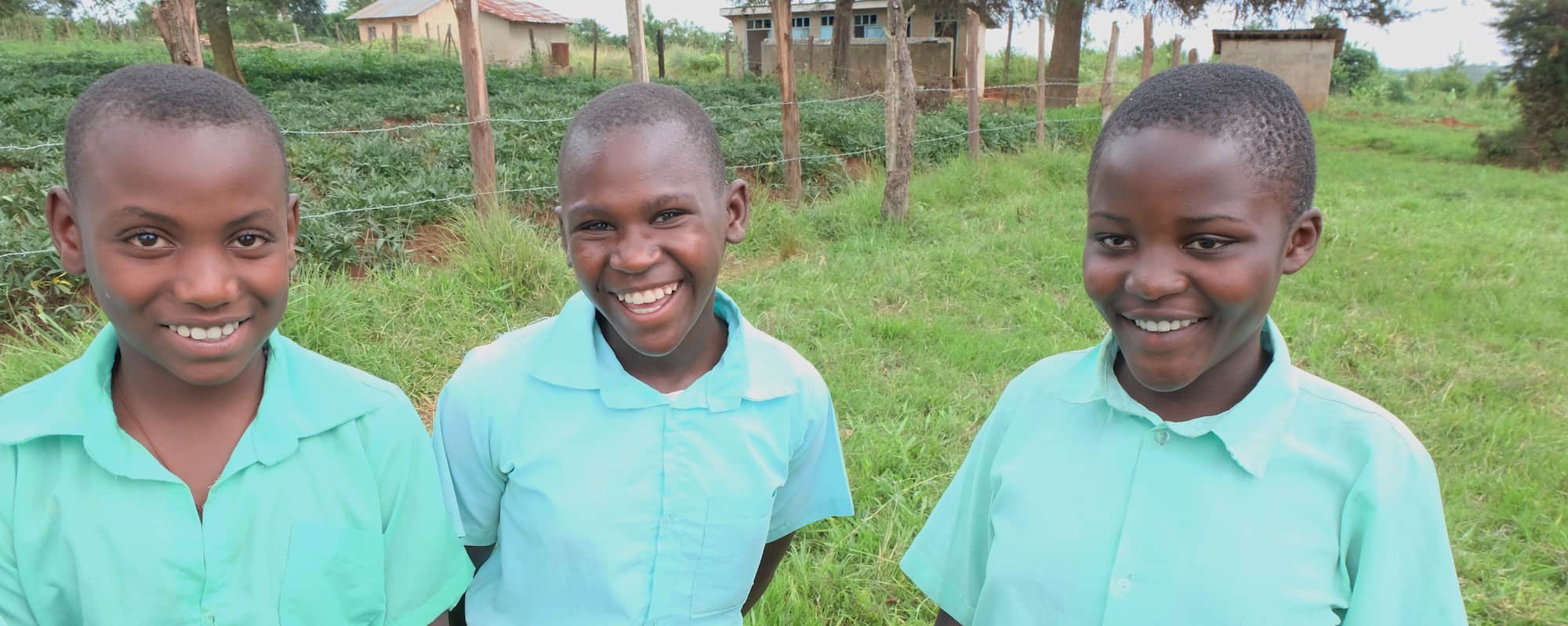
How we are supporting gender equality in Southern and Eastern Africa
WeSeeHope’s work with women and girls
EXECUTIVE SUMMARY
When women and girls have equal opportunities and their rights are respected, the cycle of poverty is broken and sustainable development is achieved.
As Michelle Bachelet, UN High Commissioner for Human Rights, stated: “When women are empowered and can claim their rights and access to land, leadership, opportunities and choices, economies grow, food security is enhanced, and prospects are improved for current and future generations.”
But as the COVID-19 crisis unfolds, it is “threatening to reverse hard-won gains towards gender equality.”
Between 2019-2021, the global poverty rate for women was expected to decrease by 2.7%, but it is now predicted to grow by 9.1%. With 59% of the world’s poor women currently living in sub-Saharan Africa, and reports of an increase in sexual and gender-based violence, we are at a critical point.
Whilst our work at WeSeeHope is focused on helping vulnerable children, parents and guardians, and community members regardless of gender, we directly address issues affecting women and girls in poor and isolated communities in Southern and Eastern Africa in three key ways:
- We help women to manage and improve their financial lives and their family’s futures.
- We work with communities to build support structures that protect girls against harmful practices such as FGM, child marriage and early pregnancy, and improve their access to education.
- We ensure women and girls have the skills to become decision-makers and leaders in their own lives and in their communities.
Our aim to create sustainable and community-led change for vulnerable children is only possible with the engagement, commitment and skills of women. Across every area where we work, they are the main carers and providers for families, the leaders in homes and the pillars in communities; they are instrumental in everything we do.
Over the past decade, the five countries in which we work – Kenya, Malawi, Tanzania, Uganda and Zimbabwe – have all taken significant steps towards gender equality in line with the UN’s Sustainable Development Goals. These include:
- Gender parity being reached in primary education
- Child marriage and other forms of sexual and gender-based violence becoming outlawed
- Laws being passed to improve women’s rights to land ownership
- Improvement in financial inclusion – for example, between 2011 and 2017, the number of women with a financial account grew by 39% in Kenya and 38% in Uganda, driven by growth in mobile banking
However, despite this progress, women and girls living in poverty remain marginalised from “vital health, education, and socio-economic opportunities throughout their lives.”
By 2021, it is predicted that among the 15+ age group in sub-Saharan Africa, 132 million women will be living on less than $1.90 a day, compared to 124 million men. Economic insecurity also persists with 92% of employed women in informal employment and, as our Uganda Country Manager, Sheila Kengingo, highlights: “Land rights is still a major issue in Uganda and elsewhere across East Africa because women own property through their husbands, but not in their own right. It is about access versus control; women work on the land most of the time but when it comes to making decisions about it, they have no say.”
Although it has declined in the region, abuse against girls is also still common:
- The national prevalence of FGM among women and girls aged 15-49 years is estimated to be 21% in Kenya and 10% in Tanzania.
- Over 10% of girls aged 15-17 years in Malawi have experienced sexual violence.
- Rates of child marriage – the percentage of girls aged 15-19 years who are married or in union (UNICEF 2014 – 2019 data) – are amongst the highest in the world:
12%
Kenya
23%
Malawi
23%
Tanzania
20%
Uganda
21%
Zimbabwe
When there are economic constraints in a family, and negative cultural practices are prevalent, girls can be looked at as a financial burden. This leads to an infringement on their rights – from never accessing an education in the first place, to dropping out of school early to work and help in the home, to being given away for early marriage. Sheila also stresses, “When a family is in very desperate times, girls can also be seen as an asset to be sold for money or exchanged for livestock.”
A tipping point: the impact of COVID-19 on women and girls in Southern and Eastern Africa
Schools closed and travel was restricted during lockdowns in Kenya, Malawi, Tanzania, Uganda and Zimbabwe between March and July, removing necessary safety nets that protect vulnerable children and families.
Sheila says: “School is a safe place for girls so they were negatively affected during the lockdown. Not only did they miss out on their education, but we saw that rising economic pressures led to an increase in child labour, sexual abuse and early marriages, which will often stop them from returning to the classroom altogether.”
From April to June 2020, Malawi’s national youth helpline recorded 669 child marriages – up by 83% since last year – and calls about child rape increased by 150%. In August it was reported that counties in Kenya have reported thousands of cases of underage pregnancy since early March.
“One of our partners in Uganda said that girls who returned to school in Primary 7 [the last year of primary school] were less than before the pandemic. What was the cause? Many of them got pregnant during the lockdown.”
Whilst restrictions have now eased, the increased financial and food insecurity in Southern and Eastern Africa is expected to fuel inequality in poor households and communities.
Sustainable and community-led development: how and why we work with women and girls
1. ECONOMICALLY EMPOWERING AND IMPROVING FINANCIAL INCLUSION FOR WOMEN
In the poor and isolated communities where we work, households have no access to formal financial services and families are living day-to-day without economic security. Through our Village Investors Programme (VIP) we therefore establish savings and loans groups for parents and guardians of vulnerable children, and the community volunteers who run our other programmes – the majority of whom are women. Put simply, the VIP:
- Teaches groups of up to 30 members how to pool their money together to form a community banking system.
- Provides training in financial and entrepreneurial skills so members can start or expand their own businesses.
- Encourages groups to run joint income generating activities and to share their market knowledge and skills with each other.
- Establishes special group savings funds that help vulnerable children in the wider community and provide emergency interest-free loans to members in urgent need of support.
“It’s about doing it little by little together – members save, borrow for their small business, get the profit, pay back the loan, and save again. This way, women learn to make money, and the more skills and resources they have, the bigger their capacity to negotiate in the home and be a voice in their community,” Sheila explains.
Access to loans help isolated and rural women take advantage of new business opportunities which would otherwise have been impossible to pursue without high interest and risky loans. Savings enable them to make strategic life choices – to pay for school fees for their children, to invest in livestock, to improve their homes and purchase land. They become more independent and confident as they no longer have to rely on their husbands for money.
“When a woman is economically empowered, the whole family will benefit,” Sheila points out, “because they are so much involved in the provision of their children, and know about their health, nutrition and development.”
Since 2014, we have established over 1,100 VIP groups and trained over 25,000 members. In 2019, the average amount each member saved by being part of a group was $113, which does not include the personal profit they accumulated throughout the year. To give you some context:
- School fees vary across countries and in communities but in general they range from $50-$150 dollars per year
- In Malawi, a vaccinated goat costs approximately $34 and in Uganda, a vaccinated pig costs approximately $100
The VIP builds an economic foundation for women, helping them to plan for their future and providing a safety net if a crisis strikes. This has been made apparent now more than ever. Members have been developing community-led responses to the pandemic, making face masks, soap and hand sanitisers, sharing information about COVID-19 prevention measures, and shifting their businesses to agriculture so they can grow food.
This will continue to be crucial in helping families and communities recover from the impacts of COVID-19.
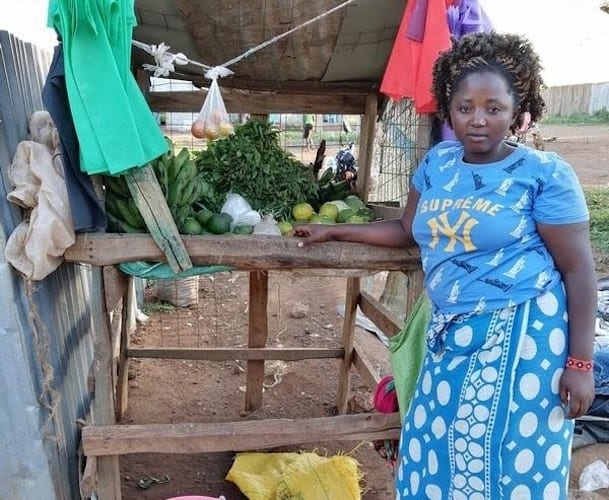
“I’m now well respected in my community… I am a business lady.”
Read how Nemayian has set up two businesses in Loitokitok, Kenya, through the VIP >
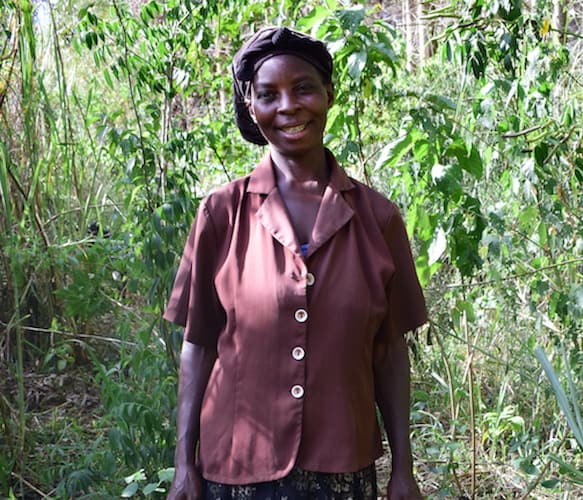
“I can now pay school fees for my children and support them with everything they need.”
Learn how Mary’s pineapple business in western Uganda is helping her care for her children >
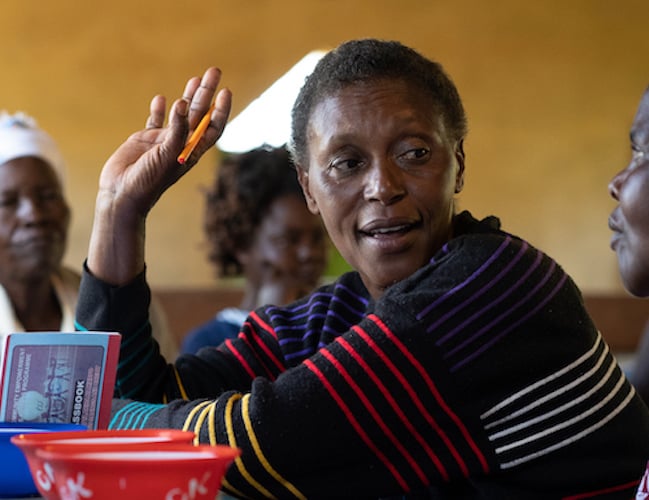
“Personally I see in ten years’ time, our lives will be better than today, because I am a businesswoman.”
2. PROTECTING GIRLS’ RIGHTS AND THEIR FUTURES
Through our Child Rights Programme, we help children, parents, guardians, community volunteers and leaders to identify, address and end harmful practices, especially those affecting girls, by:
- Setting up Child Rights Clubs for up to 30 boys and girls who are taught about their rights and responsibilities, and use dance and song to teach other children about them.
- Establishing safe, child-friendly spaces called Child Help Desks where children can report cases of abuse and seek help. For example, when a girl has her period and needs a sanitary towel, she will go here.
- Training community volunteers and teachers to deal with reported cases of abuse and take action with the child’s household, community leaders and the authorities.
- Teaching clubs how to run income generating activities, such as food gardens and pig rearing projects, so they can use the income to pay for school uniforms and fees for vulnerable children, who are often girls, in their community.
A short clip of Child Rights Club members in Rwentuha, western Uganda, performing about saying no to early marriage.
“So much of what we do through our child rights work is for girls. We teach them to be assertive and how to say no; no to a man who wants to marry you, no to a man who wants to involve you in sex, and to anyone who hurts you,” Sheila explains. “The Child Rights Club members become watchdogs for themselves as they are able to identify when a girl is in trouble and know how to help her.”
These child protection structures of teachers, volunteers, peers and safeguarding bodies reduce instances of FGM, child marriage and early pregnancy, and advocate for change in their communities. During COVID-19, they have been crucial in continuing to identify and deal with cases of sexual and gender-based abuse, and prevent more from happening.
They also promote education for all children. Sheila stresses the impact of this: “When you educate a girl, she gets the confidence and self-esteem to know her rights and demand for them, becoming a role model for other children who are going through the same issues. With an education, she finds employment, earns an income, and becomes assertive in her home and community.”
For older girls who cannot access education, we teach vocational skills in trades of their choosing, ranging from tailoring, hairdressing and cookery to motorbike mechanics and electrical installation. Learning new skills helps them to set up a business, gain employment, take control of their finances, and open up opportunities for their future.
3. PROMOTING FEMALE DECISION-MAKING AND LEADERSHIP
Community participation and ownership is at the heart of each of our seven programmes. Local volunteers and leaders are key stakeholders, involved in programme management from day one and trained to run all activities independently over four years. We make sure women are always part of these volunteer groups and provide skills and leadership training in the likes of:
- Early childhood education and care
- Emotional and counselling (psychosocial) support
- Child rights protection and guidance
- Business, marketing and financial literacy and management
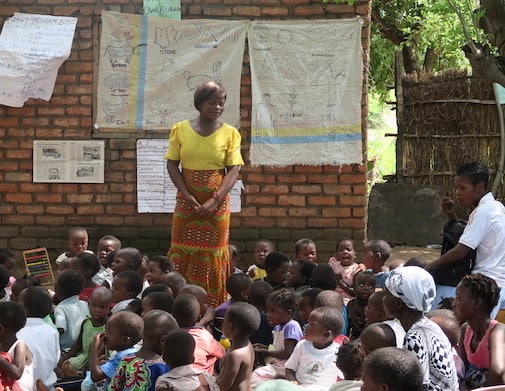
Two community members in Salima, Malawi, who have been trained as pre-school teachers, providing early education for children in their community.
“If we look at psychosocial support programmes like Kids’ Clubs,” Sheila points out, “most of the volunteers are women. They are the ones who are running the clubs, playing games with the children, and helping them to share experiences and learn from each other.”
It is through these clubs that girls open up and gain confidence, helping them to participate in the classroom and lead in their schools and communities.
At WeSeeHope, women are integral to the impact and longevity of our work with vulnerable children – they make everything we do more effective, deep-rooted and sustainable. With access to income and financial security – and as decision-makers in their homes and communities – they invest in education, health and nutrition, helping their children to thrive.
As the COVID-19 pandemic continues to threaten gender equality, together with our in-country partners, we are committed to supporting women and girls throughout this crisis and beyond. We are ensuring they are empowered economically, their rights are protected, and female leadership is always promoted within the communities we work.


